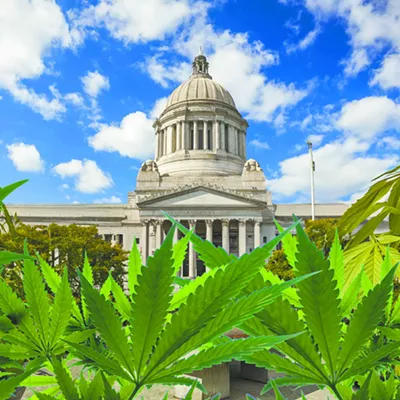On Election Night, voters in Ohio moved to make their state the 24th in the nation to legalize recreational cannabis.
As of Sunday, with over 99 percent of votes counted, the initiative passed with a hair under 57 percent of the vote — more than 1 percentage point above the results in Washington when I-502 legalized cannabis here in 2012. While the number of states that have legalized cannabis is still a tick below half, more than half of Americans now live in states where cannabis has been legalized.
Ohio's new laws will allow for the possession of up to 2.5 ounces of cannabis by adults over 21 years of age, and Ohioans will also be allowed to grow up to six plants. For comparison, Washington allows only 1 ounce of possession and does not allow for homegrown production.
The Ohio law goes into effect on Dec. 7, one month after Election Day. The state's legal market is set to open in 2024.
While the margin of victory was overwhelming, and support for legalization around the country is at an all-time high, members of the Republican-dominated state government, including Gov. Mike DeWine, have already come out in favor of making changes to the new law.
In 2020, South Dakota voters approved a constitutional amendment legalizing cannabis. Just three months later, Republican Gov. Kristi Noem successfully led a charge to overturn that amendment.
Looking ahead to 2024, which doubles as a busier federal election year, cannabis could make even more of a splash at the ballot box.
Initiatives to legalize recreational cannabis have been submitted for approval to appear on the ballot in Florida, Nebraska and South Dakota. Initiatives that would legalize medical marijuana have been submitted in Florida, Nebraska, South Dakota and, notably, Idaho.
Idaho has some of the strictest cannabis laws in the nation.
In 2015, then-Gov. Butch Otter vetoed a bill that would have allowed THC oil for treatment of severe epilepsy. It wasn't until 2021 that the state approved its first cannabinoid treatment for epilepsy, Epidiolex, containing no more than 0.1 percent THC. That same year, the Idaho Senate passed an amendment that would have enshrined cannabis prohibition in the Idaho Constitution, though it later died in the House.
Activists in Idaho attempted to get a similar initiative on the 2022 ballot, but ultimately suspended their campaign due to the coronavirus pandemic. To make the 2024 ballot, nearly 63,000 signatures need to be collected by May 1, with additional geographic requirements to be met as well. ♦





















